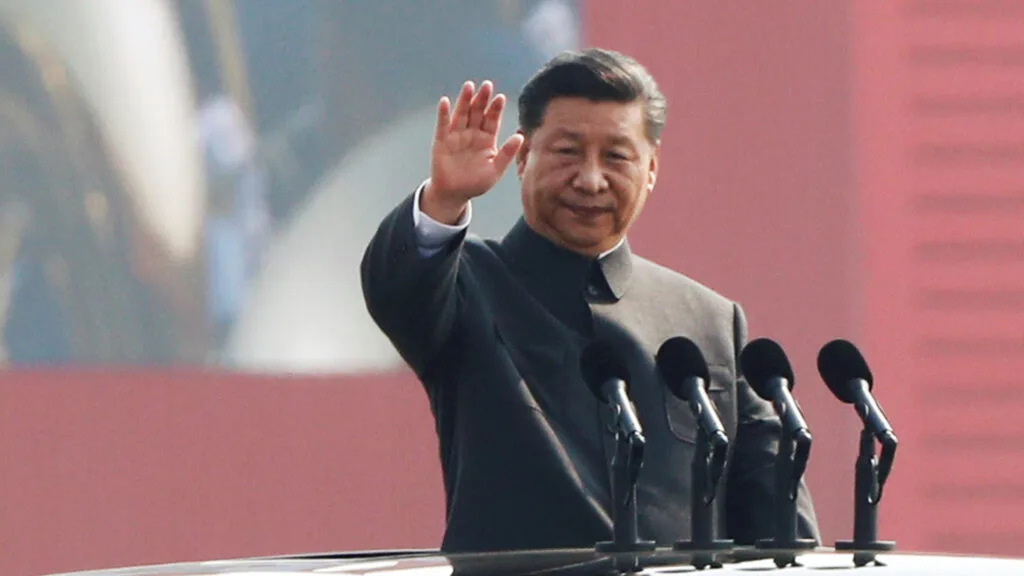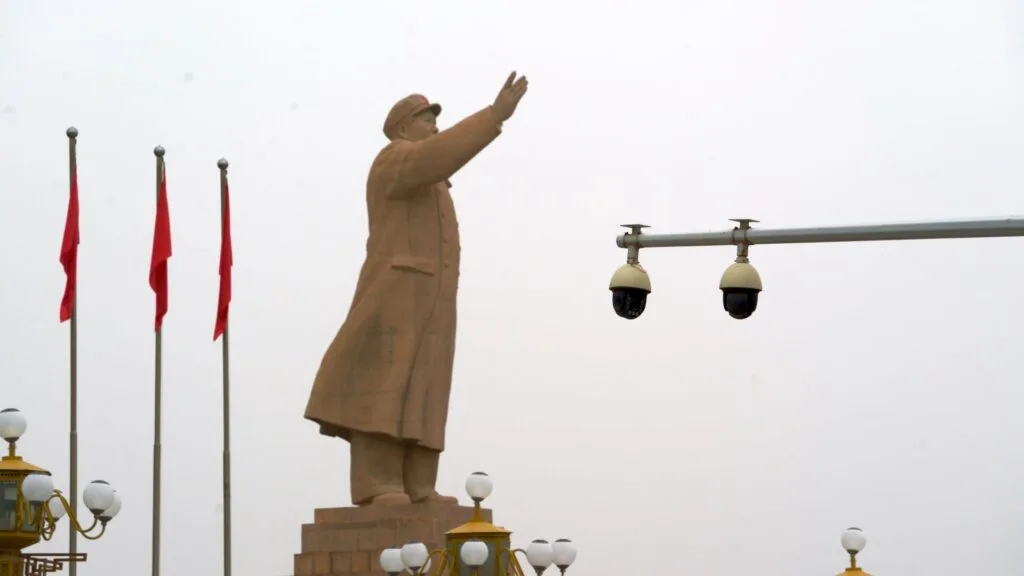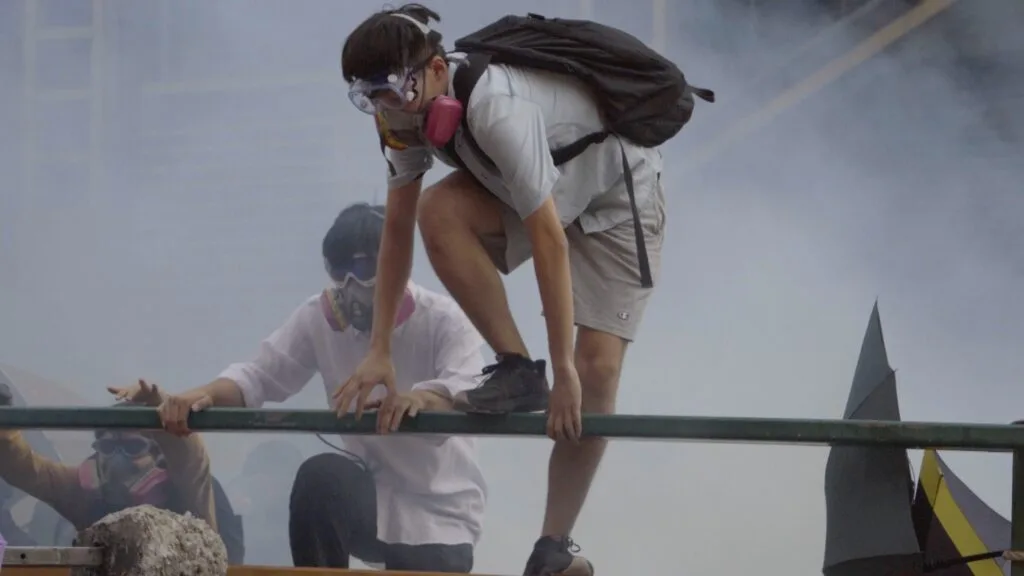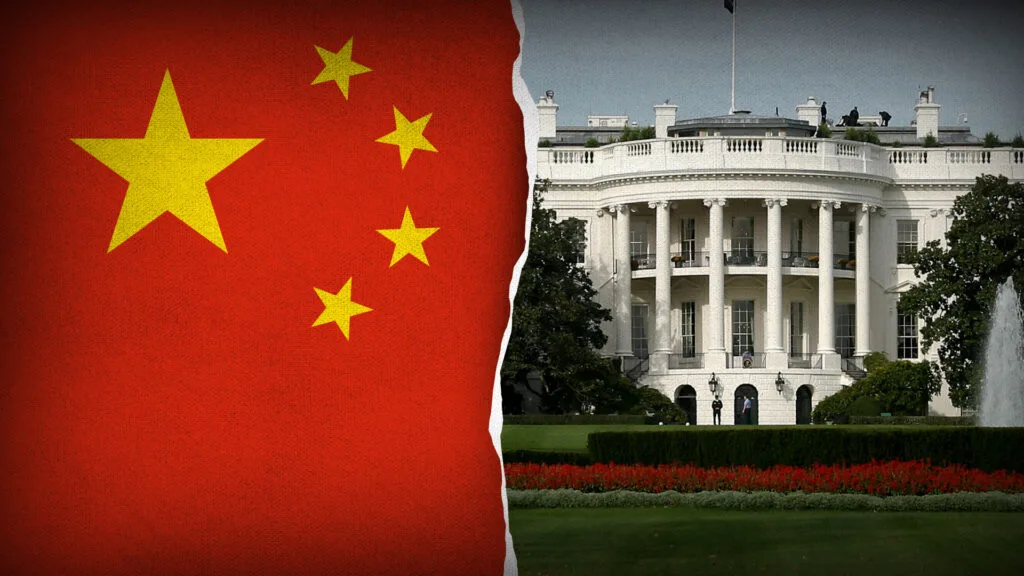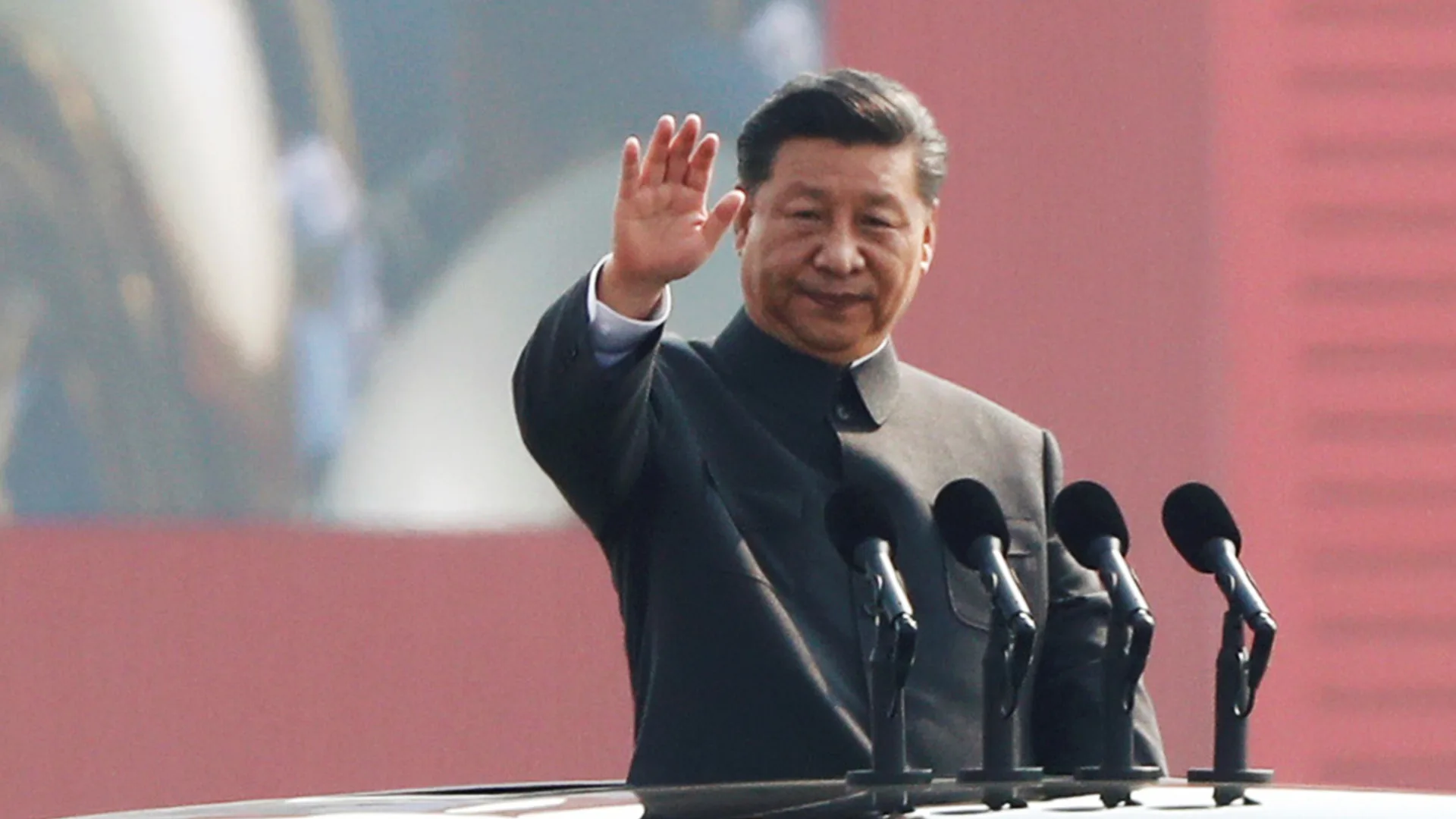What Trump Has Promised on China in a Second Term
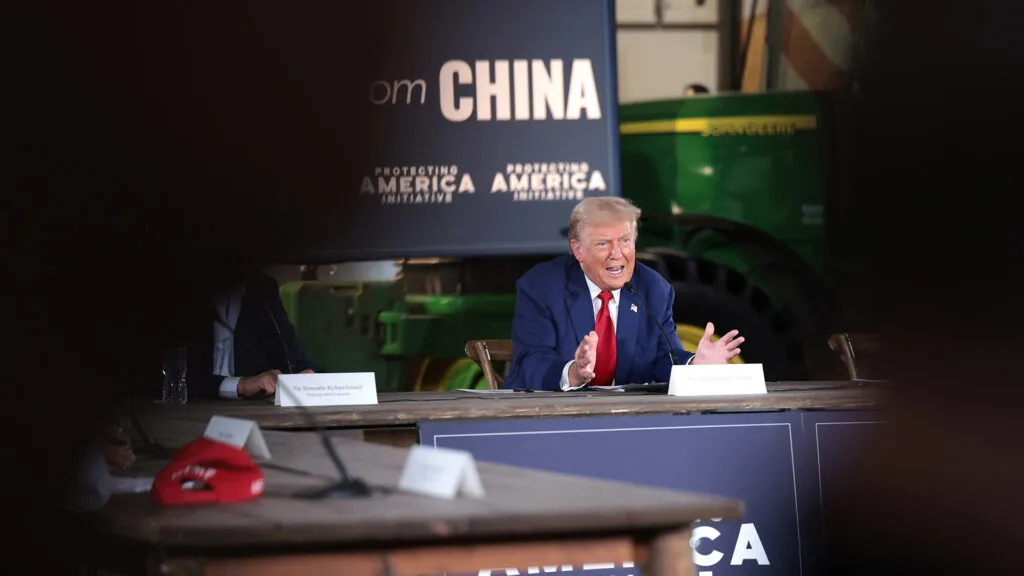
November 27, 2024
Share
President-elect Donald Trump has vowed to take a tough stance on China in his second term.
In the new documentary China, the U.S. & the Rise of Xi Jinping, FRONTLINE traces how Trump’s first administration dealt with China, and the evolution of his tense relationship with the Chinese leader.
Here’s what Trump has said about how he will approach President Xi and China when he takes office again.
Higher Tariffs
One of Trump’s key promises on the 2024 campaign trail was imposing 60% tariffs on all Chinese imports to the U.S., a drastic increase from when his previous administration raised tariffs on most Chinese products to 25%. Trump has said that tariffs “are the greatest thing ever invented,” and will protect American manufacturing and businesses. The president-elect also promised to revoke China’s trade status, which was meant to provide mutual advantages such as low tariffs and other trade advantages.
During his first term, Trump’s tariffs on Chinese goods ignited a trade war, which ultimately led to an increased trade deficit and higher costs for consumers. Trump’s stance during his first term marked a shift in U.S. policy on China from “engage, but hedge, to a much more competitive strategy,” Elizabeth Economy, co-chair of the program on the U.S., China and the world at the Hoover Institution, told FRONTLINE. President Joe Biden maintained Trump-era tariffs, continuing a trade war with China.
Taiwan’s Defense
China’s claim on Taiwan is one of the many foreign policy challenges Trump is likely to face. On the 2024 campaign trail, he’s said that Taiwan should begin paying the U.S. for its defense against China, leaving Trump’s commitment to Taiwan’s security uncertain.
Trump’s recent picks for Cabinet and adviser positions, however, send a different message. They include officials considered to be China hawks, such as Sen. Marco Rubio and Rep. Michael Waltz. Before Trump picked him to lead the State Department, Rubio said Trump would “continue to support Taiwan.”
While Trump hasn’t said whether he would deploy troops to defend Taiwan against China, he has said he would respond to a Chinese invasion with 150% – 200% tariffs on Chinese goods. “The fact that I’m not sure whether Donald Trump will defend Taiwan may not be a bad thing,” retired Lt. Gen. H.R. McMaster, a former national security adviser under Trump, told FRONTLINE, noting that it could complicate Chinese efforts to predict America’s response.
During Trump’s first administration, the U.S. deepened security ties with Taiwan, sent an under secretary from the State Department to Taipei — the highest level diplomat to visit in decades — and expanded military sales.
Crack Down on Economic Espionage
Another promise Trump made during his 2024 campaign was to curtail Chinese espionage in the U.S., and to specifically target the theft of intellectual property. He has said that the “FBI and Justice Department will be hunting down Chinese spies” who threaten American interests.
In September, the House of Representatives passed legislation that, if signed into law, would resurrect a program known as the China Initiative, intended to crack down on Chinese efforts to spy on American research and steal intellectual property.
The China Initiative, launched during Trump’s first term, was a “brain drain” for the U.S. with American-trained scientists returning to China, according to Zongyuan Zoe Liu, a senior fellow at the Council on Foreign Relations. Civil rights groups also accused the Justice Department program of racial profiling. By 2021, less than a third of the China Initiative’s cases ended in convictions or guilty pleas.
Trump also issued a proclamation blocking entry for students and researchers with suspected ties to the Chinese military during his first term. China has repeatedly denied accusations of IP theft.
Restrict Chinese Ownership of U.S. Resources and Infrastructure
Stating that China is “buying up” farmland, natural resources, technology, ports, and other infrastructure in the U.S., Trump has promised “aggressive new restrictions” on Chinese ownership in his second term and said he will pressure Chinese companies to sell holdings that threaten America’s security.
The systems currently in place are largely effective at preventing China from buying or investing in sensitive assets, according to Scott Kennedy, a senior adviser at the Center for Strategic and International Studies. Kennedy said Trump could give the Committee on Foreign Investment in the U.S. (CFIUS), which reviews such investments for national security risk, more authority to investigate Chinese companies opening new ventures in the U.S.
Congress expanded CFIUS’ powers during Trump’s first term, allowing the committee to investigate more deals for potential harm to American interests. The Trump administration worked with the panel to quell Chinese investment in American technology.
President-elect Trump has made his tough stance on China central to his campaign, but the shape his policies will take remains to be seen.
Whichever direction Trump’s policies take, the relationship between China and the U.S. may be entering a tense period as the documentary China, the U.S. & the Rise of Xi Jinping explores. Victor Gao, an academic who often speaks publicly in defense of Xi’s China, told FRONTLINE before Trump’s election, “I would say fundamentally China and the United States need to deal with each other as equals, but China-U.S. relations are moving in a direction which is proving to be difficult and dangerous.”
FRONTLINE producers Martin Smith and Marcela Gaviria contributed to this report.
Watch the full documentary China, the U.S. & the Rise of Xi Jinping:

Email:
refael_kubersky@wgbh.orgRelated Documentaries
Latest Documentaries
Related Stories
Related Stories
Explore
Policies
Teacher Center
Funding for FRONTLINE is provided through the support of PBS viewers and by the Corporation for Public Broadcasting, with major support from Ford Foundation. Additional funding is provided the Abrams Foundation, Park Foundation, John D. and Catherine T. MacArthur Foundation, Heising-Simons Foundation, and the FRONTLINE Trust, with major support from Jon and Jo Ann Hagler on behalf of the Jon L. Hagler Foundation, and additional support from Koo and Patricia Yuen. FRONTLINE is a registered trademark of WGBH Educational Foundation. Web Site Copyright ©1995-2025 WGBH Educational Foundation. PBS is a 501(c)(3) not-for-profit organization.

